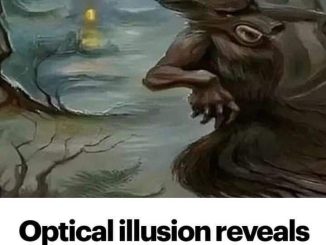In 2017, a Dairy Queen in Kewaskum, Wisconsin grabbed attention online with a message posted in its front window, causing quite a stir across the internet.
Some words or expressions, like ”Merry Christmas,” can stir up controversy, even when they seem harmless to some.
In a world filled with different beliefs and traditions, what feels like a simple greeting to one person might come across as exclusionary to another.
It’s that clash of perspectives that can turn a seemingly innocent phrase into a hot topic. Take, for example, a Dairy Queen in Wisconsin that made headlines with a bold sign on its window — sparking a heated debate online.

For years, a Dairy Queen in Kewaskum, Wisconsin, has proudly displayed a ”politically incorrect” sign on its window. While locals have long been familiar with it, back in 2017, an out-of-town customer took notice and set the internet on fire.
The store’s owner, Kevin Scheunemann, is the one who put up the sign, and he stands by its message.
“I felt the sign was appropriate to hang in terms of being transparent about the views of the owner and staff supporting God and country,” Scheunemann explained to WeAreGreenBay.com.
The sign in Kewaskum
So, what did the sign actually say?
It proudly declared the restaurant’s stance on “political incorrectness,” emphasizing holiday greetings like “Merry Christmas,” “Happy Easter,” and “God Bless America.” It also included the phrase “In God we trust” and offered free sundaes to veterans on Veteran’s Day.

According to the owner, he decided to put up the sign back in 2012, after a customer was upset by Christian music playing inside the restaurant.
“I just felt it was more appropriate to disclose these kinds of expressions,” Scheunemann continued. “It just seems that those kinds of values and principles are becoming controversial in society.”
Despite the occasional controversy, Scheunemann stands firm, willing to have a conversation with anyone who disagrees, but also proud of his values.
”Pretty tasteless”
But as mentioned, not everyone agreed with Scheunemann’s perspective. One customer from Oregon posted the sign on Dairy Queen’s national Facebook page in 2017, complaining about its exclusive nature.
This sparked a flood of negative comments, with people like Steve Thomas from Milwaukee saying, “I feel this is a pretty tasteless thing to have posted at one of your franchises. The part I disagree with is his use of the term ‘snowflake’… he’s alienating half the population by using that term.”
Thomas continued, “The other thing I don’t like is him belittling ‘safe spaces.’ Young adults need a safe place to talk when they’re struggling but won’t go because of the criticism they might receive. That’s why I disagree with this sign.”
Despite the backlash, many showed their support for Scheunemann, with some people even traveling long distances to snap a picture with the owner.
I just had to post this. Naturally, it was really busy tonight. This customer comes up to counter and says he has…Posted by Kevin Scheunemann on Saturday, June 30, 2018
In response to the controversy, Dairy Queen released a statement:
“American Dairy Queen Corporation does not encourage our independently owned and operated franchisees to post non-business related messages. This sign expresses the views of this independent owner only and does not speak for ADQ Corporation or other franchise owners. We expect our franchisees and employees to treat every customer with dignity and respect.”
New controversy
Then in 2020, the same Dairy Queen found itself at the center of another debate when a Donald Trump campaign sign, placed next to the restaurant’s parking lot, was nearly stolen.
CCTV footage showed two people trying to take the large Trump sign, but they couldn’t fit it into their car. Scheunemann, who posted about the incident on Facebook, even offered a $500 Dairy Queen gift card for information leading to the suspects’ arrest.
Love it or hate it, Dairy Queen’s politically charged sign has certainly sparked conversation over the years.
Whether you’re all for Scheunemann’s unapologetic stance or feel it crosses a line, it’s clear that his message has struck a chord with people from all walks of life. From heated debates on social media to those who travel miles just to snap a photo with the sign, it’s a reminder of how a single statement can ignite a much larger conversation.
So, what do you think? Does Scheunemann’s sign represent standing strong in your beliefs, or is it a step too far in today’s divided world?
Firefighters caution the public about the dangers of leaving water bottles inside cars

High temperatures can greatly influence our daily routines. Extended exposure to extreme heat poses a well-known risk of heatstroke, making it essential to limit time spent in direct sunlight. Staying hydrated and avoiding strenuous activities during the hottest parts of the day is vital for health and safety.
In addition to heat-related health risks, hot weather conditions, combined with strong winds and low humidity, create ideal scenarios for fires to start. One often-overlooked fire hazard is leaving water bottles inside vehicles during extreme heat. Clear bottles can act like magnifying glasses, concentrating sunlight and generating focused beams of light.
When light passes through a transparent or semi-transparent bottle, it can create a concentrated heat point. This intense heat can ignite nearby flammable items, such as paper or clothing, leading to a fire in just minutes. This is why fire safety officials advise against leaving water bottles in cars.

In July 2017, Dioni Amuchastegui, a battery technician at Idaho Power, experienced this firsthand when he noticed smoke rising from his truck’s center console during his lunch break. At first, he thought it was just dust. However, he soon realized that sunlight was bending through a water bottle, causing smoke to form.
Acting swiftly, he removed the bottle and averted a potential fire. Amuchastegui later shared his experience with coworkers, which inspired the creation of an awareness video highlighting the dangers of leaving water bottles in vehicles during hot weather.



Leave a Reply